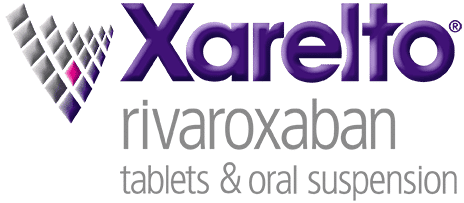预约演示
更新于:2026-02-27
DB-105
更新于:2026-02-27
概要
基本信息
原研机构 |
最高研发阶段临床2期 |
首次获批日期- |
最高研发阶段(中国)临床2期 |
特殊审评- |
登录后查看时间轴
关联
13
项与 DB-105 相关的临床试验NCT03440021
The Effects of Single-dose Administration of a Novel Selective alpha2c Antagonist on Emotional and Cognitive Processing in Healthy Volunteers: an fMRI Investigation
The aim of the present study is to investigate changes in neural activity (BOLD signal), as measured using fMRI, in brain areas associated with emotional and working memory during task performance after single-dose administration of a novel selective alpha2c adrenoceptor antagonist (ORM-12741) in healthy volunteers. Further, it will be explored whether ORM-12741 affects connectivity between brain areas in rest, as measured using fMRI, and cognitive performance in the sample under investigation.
开始日期2018-03-26 |
申办/合作机构 |
NCT02471196
Efficacy of ORM-12741 on Agitation/Aggression Symptoms in Patients With Alzheimer's Disease: A Randomised, Double-blind, Placebo-controlled, Parallel Group, Multicentre Study of 12 Weeks
This study evaluates the effect of ORM-12741 on agitation/aggression symptoms in Alzheimer's disease. Two thirds of the patients will receive ORM-12741 and one third will receive placebo.
开始日期2015-08-14 |
申办/合作机构  Orion Oyj Orion Oyj [+1] |
NCT02303860
Pharmacokinetic Study of ORM-12741 After Multiple Oral Doses
The purpose of this study is to evaluate ORM-12741 concentrations in blood at steady state.
开始日期2014-10-01 |
申办/合作机构 |
100 项与 DB-105 相关的临床结果
登录后查看更多信息
100 项与 DB-105 相关的转化医学
登录后查看更多信息
100 项与 DB-105 相关的专利(医药)
登录后查看更多信息
4
项与 DB-105 相关的文献(医药)2020-12-01·EJNMMI research3区 · 医学
Application of the PET ligand [11C]ORM-13070 to examine receptor occupancy by the α2C-adrenoceptor antagonist ORM-12741: translational validation of target engagement in rat and human brain
3区 · 医学
ArticleOA
作者: Solin, Olof ; Rouru, Juha ; Kuokkanen, Katja ; Rinne, Juha O ; Scheinin, Mika ; Virta, Jere ; Shahid, Mohammed ; Arponen, Eveliina ; Marjamäki, Päivi ; Sallinen, Jukka
Abstract:
Background:
Availability of the α2C-adrenoceptor (α2C-AR) positron emission tomography (PET) tracer, [11C]ORM-13070, and the α2C-AR antagonist ORM-12741 allows probing of the roles of this G-protein coupled receptor subtype in brain function, both in healthy humans and in patients with various brain disorders. This translational study employed [11C]ORM-13070 autoradiography and PET to determine α2C-AR occupancy by ORM-12741 in rat and human brain, respectively.
Results:
ORM-12741 has high affinity (Ki: 0.08 nM) and potent antagonist activity (Kb: 0.04 nM) as well as selectivity (Ki estimates for the human α2A-AR and α2B-AR were 8.3 nM and 0.8 nM, respectively) for the human α2C-AR subtype. [11C]ORM-13070 had highest uptake in the basal ganglia of rat and human brain. Pretreatment with ORM-12741 inhibited [11C]ORM-13070 binding in rat striatum in a time- and dose-dependent manner at 10 and 50 µg/kg (s.c.) with an EC50 estimate of 1.42 ng/mL in rat plasma, corresponding to protein-free drug concentration of 0.23 nM. In the living human brain, time- and dose-related α2C-AR occupancy was detected with EC50 estimates of 24 ng/mL and 31 ng/mL for the caudate nucleus and putamen, respectively, corresponding to protein-free concentrations in plasma of 0.07 nM and 0.1 nM. Modelling-based maximum α2C-AR occupancy estimates were 63% and 52% in the caudate nucleus and the putamen, respectively.
Conclusions:
ORM-12741 is a selective α2C-AR antagonist which penetrates the rat and human brain to occupy α2C-ARs in a manner consistent with its receptor pharmacology.Trialregistrationnumberanddateofregistration: ClinicalTrial.cov NCT00829907. Registered 11 December 2008. https://clinicaltrials.gov/.
2017-10-01·Epilepsy research3区 · 医学
Disease-modifying effect of atipamezole in a model of post-traumatic epilepsy
3区 · 医学
Article
作者: Nissinen, Jari ; Andrade, Pedro ; Malm, Tarja ; Natunen, Teemu ; Hiltunen, Mikko ; Soares, Joana I ; Kanninen, Katja ; Ndode-Ekane, Xavier Ekolle ; Sallinen, Jukka ; Shatillo, Olena ; Pitkänen, Asla
Treatment of TBI remains a major unmet medical need, with 2.5 million new cases of traumatic brain injury (TBI) each year in Europe and 1.5 million in the USA. This single-center proof-of-concept preclinical study tested the hypothesis that pharmacologic neurostimulation with proconvulsants, either atipamezole, a selective α2-adrenoceptor antagonist, or the cannabinoid receptor 1 antagonist SR141716A, as monotherapy would improve functional recovery after TBI. A total of 404 adult Sprague-Dawley male rats were randomized into two groups: sham-injured or lateral fluid-percussion-induced TBI. The rats were treated with atipamezole (started at 30min or 7 d after TBI) or SR141716A (2min or 30min post-TBI) for up to 9 wk. Total follow-up time was 14 wk after treatment initiation. Outcome measures included motor (composite neuroscore, beam-walking) and cognitive performance (Morris water-maze), seizure susceptibility, spontaneous seizures, and cortical and hippocampal pathology. All injured rats exhibited similar impairment in the neuroscore and beam-walking tests at 2 d post-TBI. Atipamezole treatment initiated at either 30min or 7 d post-TBI and continued for 9 wk via subcutaneous osmotic minipumps improved performance in both the neuroscore and beam-walking tests, but not in the Morris water-maze spatial learning and memory test. Atipamezole treatment initiated at 7 d post-TBI also reduced seizure susceptibility in the pentylenetetrazol test 14 wk after treatment initiation, although it did not prevent the development of epilepsy. SR141716A administered as a single dose at 2min post-TBI or initiated at 30min post-TBI and continued for 9 wk had no recovery-enhancing or antiepileptogenic effects. Mechanistic studies to assess the α2-adrenoceptor subtype specificity of the disease-modifying effects of atipametzole revealed that genetic ablation of α2A-noradrenergic receptor function in Adra2A mice carrying an N79P point mutation had antiepileptogenic effects after TBI. On the other hand, blockade of α2C-adrenoceptors using the receptor subtype-specific antagonist ORM-12741 had no favorable effects on the post-TBI outcome. Finally, to assess whether regulation of the post-injury inflammatory response by atipametzole in glial cells contributed to a favorable outcome, we investigated the effect of atipamezole on spontaneous and/or lipopolysaccharide-stimulated astroglial or microglial cytokine release in vitro. We observed no effect. Our data demonstrate that a 9-wk administration of α2A-noradrenergic antagonist, atipamezole, is recovery-enhancing after TBI.
2017-04-13·Expert opinion on pharmacotherapy3区 · 医学
An update on the advancements in the treatment of agitation in Alzheimer’s disease
3区 · 医学
Review
作者: Porsteinsson, Anton P. ; Antonsdottir, Inga M.
INTRODUCTION:
Neuropsychiatric symptoms (NPS) in Alzheimer's disease (AD) are associated with significant negative outcomes for patients and their caregivers. Agitation, one of the most distressing NPS, lacks safe and effective long term interventions. Nonpharmacological interventions are suggested as first-line treatment, but aren't effective for every patient, resulting in pharmacological interventions for some patients, consisting of off-label use of antipsychotics, sedative/hypnotics, anxiolytics, acetylcholinesterase inhibitors, memantine, and antidepressants; where efficacy doesn't necessarily outweigh associated risks. Areas covered: Gains in understanding neurobiological mechanisms underlying agitation have fueled several recent clinical trials. This article updates our review published in 2014. Comprehensive literature search for published articles from January 2014 to December 2016 evaluating pharmacologic interventions for agitation in AD was done. A review of several clinical trials was completed: dextromethorphan/quinidine, scyllo-inositol, brexpiprazole, prazosin, cannabinoids, citalopram, escitalopram, pimavanserin, ITI-007, ORM-12741 show promise in treating agitation. Expert opinion: Neurobiological findings, innovative trials designs, statistical approaches, and preliminary paths for regulatory agency acceptance have re-ignited the area of pharmacological treatment of NPS. Though further research is needed to fully determine the safety, tolerability and efficacy of these treatments, the mission to find effective treatments for neuropsychiatric symptoms such as agitation in patients with dementia is well underway.
7
项与 DB-105 相关的新闻(医药)2023-11-01
·药时代
2023年10月31日,绿叶制药宣布旗下利斯的明透皮贴剂(2次/W)获NMPA批准用于治疗轻、中度阿尔茨海默病的症状。同日,CDE官网显示,礼来阿尔茨海默病新药Donanemab注射液的上市申请已获受理。2023年9月20日,通化金马药业发布公告,旗下1类新药琥珀八氢氨吖啶片用于治疗轻、中度阿尔茨海默病的III期临床试验成功。此前,已获批上市AD药物多为AChE单靶点抑制剂,辉瑞的他克林(1993年上市,后因不良反应退市)、卫材的多奈哌齐(1996年)、诺华的卡巴拉汀(2000年)、强生的加兰他敏(2001年)。除了金马,国内还有恒瑞(SHR-1707)、喜鹊医药(MN-08)、卓凯生物(05061)、安立玺荣(EI-1071)、日馨医药( RX01)、博芮健制药(BrAD-R13)、宁丹新药(Y-1)、索元生物(DB105)等众多玩家云集,携手推进AD新药研发,希望可以早日造福患者,去满足这巨大未被满足的临床需求。封面图来源:123rf君实PD-1通过FDA生产现场核查背后:翻译文件超千万字,5次模拟考,2次正式核查,以及持续建设的国际化体系……中国基因疗法赛道驶入高速期,跨国药企纷纷牵手本土新锐DRUGTIMES点击在看 共济新药研发浪潮
临床3期上市批准基因疗法引进/卖出申请上市
2023-09-21
·药时代
👇点击图片,预约直播!👆长按扫码,技术交流!今天(9月21日)是世界阿尔茨海默病(AD)日,根据国际阿尔茨海默病协会报告,全球每3秒即新增一位AD患者。我国作为AD大国,现有1000多万AD患者,预计到2030年,中国AD患者人数将增至2220万。面对如此巨大的公共卫生挑战,全球药企对AD新药的研发不遗余力。2023年7月7日,Biogen/卫材的Lecanemab从加速获批正式转为完全批准,这是20年来首款获得FDA完全批准AD新药。2023年7月17日,礼来公布Donanemab 3期完整数据发布,早期患者认知功能下降缓解达60%,已向FDA递交新药上市申请。国内药企也传来捷报。9月20日,通化金马药业发布公告,旗下1类新药琥珀八氢氨吖啶片用于治疗轻、中度阿尔茨海默病的III期临床试验成功。自金马8月宣布召开III期临床试验揭盲预备会以来,股价一路涨停,期间多次涨停,如今股价已翻近三倍,金马变成了黑马。琥珀八氢氨吖啶片是一种双靶点抑制剂,可同时抑制乙酰胆碱酯酶(AChE)和丁酰胆碱酯酶(BChE)。此前,已获批上市AD药物多为AChE单靶点抑制剂,辉瑞的他克林(1993年上市,后因不良反应退市)、卫材的多奈哌齐(1996年)、诺华的卡巴拉汀(2000年)、强生的加蓝他敏(2001年)。除了金马,国内还有恒瑞(SHR-1707)、喜鹊医药(MN-08)、卓凯生物(05061)、安立玺荣(EI-1071)、日馨医药( RX01)、博芮健制药(BrAD-R13)、宁丹新药(Y-1)、索元生物(DB105)等众多玩家云集,携手推进AD新药研发,希望可以早日造福患者,去满足这巨大未被满足的临床需求。封面图来源:pixabay6位导师!3天2夜!【创新药精英集训营】火热报名中!点击这里,报名药时代学苑!
临床3期上市批准
2023-06-11
·药时代
正文共: 6295字 24图预计阅读时间: 16分钟中枢神经系统(CNS)疾病代表着一个巨大的未被满足的临床需求,备受全球业界、医生、患者、患者家属和普通老百姓的关注。比如:阿尔茨海默病(AD)全球患者5500万,每年9月21日是“世界阿尔茨海默病日”;帕金森病(PD)全球患者700万~1000万,每年的4月11日是“世界帕金森日”。这些数字还在快速升高,背后藏着一个巨大的市场。过去几十年的时间里,MNC为代表的新药研发公司纷纷布局CNS领域,可谓是兵家必争,群雄逐鹿,遗憾的是,先后折戟沉沙,行业进入寒冬期。阿尔兹海默病战场又一折戟沉沙!百健(Biogen)提前终止3期临床试验。我们向英雄致敬!阿尔兹海默症阵地上又一折戟沉沙!罗氏停止两个三期临床试验又一折戟沉沙!默沙东宣布停止APECS研究。该研究旨在评估Verubecestat(MK-8931)治疗前驱期阿尔茨海默病患者【重要新闻】礼来在阿尔茨海默氏症药物solanezumab上的巨大赌注失利,股票随之下跌据统计,CNS新药研发的成功率是6.2%,而非CNS新药研发的成功率则为13.3%。这意味着CNS新药研发的成功率更低,面临的失败风险更高。有一句话说的很好,那就是“起点重要,终点重要,拐点也重要!” 令人欣慰的是,最近这两年,CNS新药研发赛道的拐点好像出现了。这个结论是基于以下五个现象和趋势。01时隔17年后,CNS新药接连获批上市以AD新药为例。2021年6月7日,渤健(Biogen)和卫材(Eisai)联合研发的阿尔茨海默病药物阿杜那单抗(Aducanumab,商品名:Aduhelm)获得美国FDA的加速批准,距离上一次AD新药获批时隔17年。2023年1月6日,这两家公司联合研发的AD新药Lecanemab(仑卡奈单抗,商品名:Leqembi)获得FDA的加速批准。这款新药以早期AD患者为对象,可以清除患者脑部的致病物质β淀粉样蛋白斑块。作为第一个明确表明减少淀粉样蛋白会给患者带来临床获益的药物,仑卡奈单抗可能成为AD治疗新的里程碑。5个月后,2023年6月9日,FDA外周和中枢神经系统药物咨询委员会举办会议,六名有投票权的成员参加,其中一名是患者代表,最终以6比0的投票结果一致赞成全面批准Leqembi。该药预计将于7月6日或之前获得全面批准,这将为那些患有轻度认知障碍或轻度痴呆并确认存在β淀粉样蛋白病理,但不能或不想支付每年26,500美元定价的患者提供更广泛的保险覆盖。2023年5月12日,美国FDA批准大塚制药(Otsuka Pharmaceutical)和灵北(Lundbeck Pharmaceuticals)联合开发的Rexulti(brexpiprazole,依匹哌唑)扩展适应症,治疗由阿尔茨海默病引起的痴呆所导致的激越症状。这是FDA首次批准用于此适应症的治疗选择。02跨国药企为代表的新药研发公司纷纷回归跨国药企为代表的新药研发公司纷纷回归,回到CNS新药研发赛道上。比如:礼来公司,AD新药项目快速推进,III期临床试验取得积极的结果。公司股价飙升,一举突破4000亿美元大关,成为世界上首家市值突破4000亿美元的纯药企。(制表:药时代)【推荐阅读】股价3年翻了3.5倍后,礼来以4229亿美元市值超越强生,登顶药企第一!一夜暴涨256亿美元!礼来Donanemab有多强?03聚焦CNS的新药研发公司纷纷成立,而且获得投资据统计,中国目前的CNS biotech公司有60多家,参加5月7日成功举办的“攻克CNS顽疾,新药研发狂飙起来!——第四届中国新药领袖闭门交流会”的很多专家们的公司就是最好的范例。▼▼高朋满座,齐聚一堂▼▼ 附:中国62家CNS Biotech名单整理|研发客(上下滑动查看更多)(来源:Dona之后,我们分析了62家CNS公司 | 第一现场)04新的基础研究、新的高端技术不断涌现新的基础研究、新的高端技术不断涌现。这是“攻克CNS顽疾,新药研发狂飙起来!——第四届中国新药领袖闭门交流会”头脑风暴环节三大话题之一。05相关报道文章、行业会议也越来越多聚焦CNS的报道文章、行业会议也越来越多,而且受关注程度越来越高。国外如此,国内亦然。“攻克CNS顽疾,新药研发狂飙起来!——第四届中国新药领袖闭门交流会”就是一个实例。 我们再次以AD为例,药时代多年来持续关注,已经发布了140篇报道文章。重磅!FDA可能下月全面批准阿尔茨海默病新药Leqembi | 附:139篇AD相关文章攻克CNS顽疾,新药研发狂飙起来!——第四届中国新药领袖闭门交流会成功举办!阿尔茨海默病患者家属之后,临床医生们也纷纷分享他们的亲身感受。。。治疗三个月,近一半的阿尔兹海默病患者出现逆转!TrueBinding公布TB006的OLE临床研究结果华盛顿病人 | 一个新疗法拯救阿尔兹海默病患者的神奇故事!FDA同意提前召开Type B会议,讨论阿尔兹海默病新药TB006快速开发和加速审批途径Biogen/卫材阿尔兹海默症药物在华上市申请获受理新发现!刺激大脑中的这个分子,就能对抗阿尔兹海默症等神经退行性疾病重磅!我国科学家揭晓凝集素导致阿尔兹海默症的机制阿尔兹海默病患者的新希望!Art of impossible:Lecanemab击中粉状蛋白练门盘前暴涨153亿美金,再度被点燃的阿尔兹海默症药物研发“战火”艾伯维放弃了2.25亿美元的药物!阿尔兹海默病领域再度遇挫...百健败退,阿尔兹海默症缘何成为药企黑洞?女性为何更易患阿尔兹海默症?来自深理工、武大的学者是这么说的哥大团队发现新冠重症死亡患者大脑中出现阿尔兹海默症样特征“隐秘的杀手”阿尔兹海默症:发病机制及全球药物研发现状盘点2021年终盘点 | 阿尔兹海默病研究领域重磅级成果!“洗白”苏大强的阿尔兹海默病,或许可以通过喝咖啡降低患病风险再现曙光!全球首个阿尔兹海默症鼻腔喷剂疫苗人体临床试验正式启动Science子刊:颠覆对阿尔兹海默症发展进程的认知,毒蛋白多点开花,不断复制阿尔兹海默症发作前6年诊断准确率100%,U-p53抗体有望成为早期诊断第一选择重磅!首次活人大脑中证实!神经炎症是阿尔兹海默症发展关键上游机制!或推动新疗法面世Nature子刊:CRISPR基因编辑,在阿尔兹海默症预防和治疗中潜力巨大A药风波大梳理:18年以来首款阿尔兹海默症药物上市,为何争议不断?再次发挥优势?索元生物引入灵北阿尔兹海默症III期临床失败产品全球权益近5年获批的抗癌小分子新药和阿尔兹海默症新药Aducanumab趁热打铁:FDA批准新药2天后,这家阿尔兹海默症研发公司提交了上市申请又走了一个!第三名FDA专家组成员因阿尔兹海默症新药获批而辞任FDA专家组成员之一因阿尔兹海默新药获批而辞任从Aducanumab到GV-971,人类能跳出阿尔兹海默症这座“五指山”吗?里程碑!渤健/卫材阿尔兹海默症新药Aducanumab获FDA批准上市,十年磨一剑!Cell:给CRISPR加上开关!通过表观遗传操控基因表达,为阿尔兹海默症等及并带来新的解决方案睡觉打鼾的人,大脑中出现与阿尔兹海默症相同的损伤,或是老年痴呆前兆2021年生物制药领域最值得关注的七大趋势:基因疗法、阿尔兹海默症、合成生物学...阿尔兹海默病患者的福音!礼来的一小步,人类健康的一大步!十年深耕,20 篇高水平论文,施一公团队Cell再解阿尔兹海默症重要蛋白结构阿尔兹海默病 | 华尔街分析师预计百健将在几周内递交aducanumab上市申请主攻阿尔兹海默病,这家雄心勃勃的美国小公司能否成为下一匹黑马?阿尔兹海默病领域里程碑!GV-971刚刚获批!重磅!礼来董事长兼首席执行官David Ricks先生谈阿尔兹海默症药物研发新阿尔兹海默症药物通过第一阶段人体测试绿叶制药阿尔兹海默病创新药关键性试验达到预期终点阿尔兹海默病战场又一折戟沉沙!百健(Biogen)提前终止3期临床试验。我们向英雄致敬!阿尔兹海默症阵地上又一折戟沉沙!罗氏停止两个三期临床试验牛!这三家生技公司要登陆纳斯达克了!CAR-T,基因疗法,阿尔兹海默症!大闹华尔街的印度杰青Vivek Ramaswamy猛攻阿尔兹海默病症 但三期临床试验失败华盛顿病人之后,越来越多阿尔茨海默病患者的感人故事被分享!JAMA子刊:卡介苗或对阿尔茨海默病具有保护作用天选之人!天生抵御阿尔茨海默病,全世界仅发现2人,他们会是人类攻克阿尔茨海默病的关键吗?最新研究显示,深度睡眠可以减轻阿尔茨海默病的记忆丧失Science发文质疑:β淀粉样蛋白抗体,会导致阿尔茨海默病人大脑萎缩?BioWorld采访 | 不是「减缓」,而是「逆转」!阿尔茨海默病新药已悄悄崭露头角......华人科学家发现有望「治愈」阿尔茨海默病的靶点!临床效果令人震撼......阿尔茨海默病、癌症......看「新型自噬降解剂」的研究进展,这是继PROTAC之后又一新起之秀瑕不掩瑜,Lecanemab获FDA批准上市!人类发起了对抗阿尔茨海默病的「诺曼底登陆」FDA千金买马骨,阿尔茨海默症药物的胜利十一月Nature:重大进展!在阿尔茨海默病中,蛋白medin与β淀粉样蛋白相互作用并共同沉积在大脑血管中阿尔茨海默病研究,到了 “范式转移” 的关键节点继卫材之后,礼来也看到了阿尔茨海默病曙光阿尔茨海默病,可能是我们老去后的结局……最新研究:感染新冠后,一年内患阿尔茨海默病风险增加50-80%除了β淀粉样蛋白靶点外,阿尔茨海默病新药管线高歌猛进2022年阿尔茨海默症协会国际会议的要点简述阿尔茨海默病三巨头罗氏、渤健、礼来纷纷下调期望值阿尔茨海默病(AD)治疗领域的「徘徊」与「探索」阿尔茨海默病:何以解忧,唯有新药2022 阿尔茨海默病全球药物开发pipeline汇总FDA批准首个用于阿尔茨海默病早期诊断的IVD测试在解决阿尔茨海默病的竞赛中,科学家们在大海捞针阿尔茨海默病新药Aduhelm回顾与展望粪菌移植驱动阿尔茨海默病模型的行为和认知变化CRISPR/Cas9在阿尔茨海默症中的应用前景渤健阿尔茨海默病新药Aduhelm的争论没完没了,美国医保被怼!【行研】阿尔茨海默病药物研发历程回顾及最新进展阿尔茨海默病虎年现虎斗——礼来和罗氏勇敢挑战渤健!阿尔茨海默病新进展| Aduhelm的一波三折与GV-971的乘风破浪Biogen公司阿尔茨海默病药物备受争议,美国医疗保险和医疗补助服务中心 (CMS)仅支持其在临床试验中的使用Aduhelm 的困境:美国多所顶级医院表示不提供有争议的阿尔茨海默药阿尔茨海默病领域风波再起!美国专家团体要求FDA立即下架渤健新药Aduhelm阿尔茨海默病药物 aducanumab 未获准在欧盟使用伟哥有助于预防和治疗阿尔茨海默病科学家发现阿尔茨海默病的潜在原因新框架:不是一种而是有三种形式的阿尔茨海默病争议中上市的阿尔茨海默病新药,超1/3患者治疗后出现脑水肿身体活动可能通过降低大脑炎症来改善阿尔茨海默病的预后春天来了:越来越多的阿尔茨海默症单抗药进入FDA审查3500万阿尔茨海默患者的希望:开创新靶点治疗方法,有望提供特异性疫苗最新阿尔茨海默药临床试验结果喜忧参半,tau靶向抗体治疗未来不明3.92万美元/年,罗氏的阿尔茨海默病新药定价曝光一种利尿剂可用于治疗阿尔茨海默病一款老药的小鼠实验显示出阿尔茨海默病治疗新前景研究支持糖尿病和阿尔茨海默病之间的联系渤健阿尔茨海默药销售远低预期,公司考虑裁员等措施削减成本胆固醇导致阿尔茨海默病斑块的形成阿尔茨海默病新药开发重燃激情阿尔茨海默氏症药物,从Bapineuzumab到Donanemab,抗Aβ抗体的研发因何迷雾重重?近20年无新药面世,研发失败率99%!阿尔茨海默症难在哪?渤健阿尔茨海默病新药aducanumab获批概率降至40%免疫疗法再立功!APOE抗体治疗阿尔茨海默症阿尔茨海默病新药研发狂舞中,罗氏却异常冷静阿尔茨海默病药物开发作用机制盘点阿尔茨海默症 | 是否能在早期阻止“记忆橡皮擦”偷走我们的记忆?Ad com上渤健阿尔茨海默症药aducanumab遭重挫,FDA被指欠缺专业性Adcomm临近,阿尔茨海默新药aducanumab能否助渤健开始转运?百年沉浮折戟再战,抗阿尔茨海默病之路的下一个里程碑在哪?| 纵横梳理阿尔茨海默病新药研发大逃离?寻回消失的记忆——麦格里大学在阿尔茨海默症研究上取得重大进展罗氏/基因泰克再战阿尔茨海默症,重拳出击靶向Tau蛋白阿尔茨海默症的血液检查展现新希望,可提前数十年预警FDA批准首个阿尔茨海默症Tau蛋白成像试剂STM重磅:确认tau蛋白是阿尔茨海默症的关键驱动因素!我国原创治疗阿尔茨海默病新药正式上市,九期一®国际多中心临床研究计划发布Science | 阿尔茨海默病专家们以期待和谨慎的心情迎接中国令人惊奇地批准一个治疗脑疾病的新药Cell | 最全面的阿尔茨海默病生物学综述(值得收藏)这项研究可能对阿尔茨海默症、中风等的新药研发具有重要意义这篇《科学》论文,可能找到了治疗阿尔茨海默病的关键索元生物获得治疗阿尔茨海默病新药ORM-12741的全球权益抗阿尔茨海默病药物研发进展中国阿尔茨海默氏症有“共同”风险基因FDA亮剑,整治阿尔茨海默症“神药”!突破!阿尔茨海默症血检可提前十年预警!在华进行的轻中度阿尔茨海默病患者三期临床试验表明新药可以改善认知能力全靠照料的阿尔茨海默症:12年后我国相关负担或达17万亿请为抗阿尔茨海默病新药GV-971投票!| 中科院科技创新亮点成果筛选起死回生!阿尔茨海默氏症新药给人希望阿尔茨海默病的真正元凶可能是它攻克阿尔茨海默症迈出关键一步 国产新药完成临床3期试验用纳米材料治疗阿尔茨海默病重磅!新发现三种基因与阿尔茨海默病有关阿尔茨海默病治疗迎来新曙光,华中科技大学等Nature子刊发文,揭示其发病新机制阿尔茨海默病的新药研发困局又一折戟沉沙!默沙东宣布停止APECS研究。该研究旨在评估Verubecestat(MK-8931)治疗前驱期阿尔茨海默病患者辉瑞停止对阿尔茨海默症、帕金森症新药的研发,计划裁员300人真相若隐若现:阿尔茨海默病的病原物侵染、淋巴回流障碍及淀粉样斑块酶解药物Nature子刊:阿尔茨海默病竟是肠道微生物在作祟?重磅:华人科学家发现阿尔茨海默病的源头或可追溯到出生前丨奇点猛科技雨里:阿尔茨海默病百年黑暗中“闪烁”的曙光MIT神经学大牛关于阿尔茨海默病的超级颠覆研究,简直简直简直逆天了丨奇点猛科技新见解!阿尔茨海默病发生时大脑如何变化【重要新闻】礼来在阿尔茨海默氏症药物solanezumab上的巨大赌注失利,股票随之下跌06道阻且长,行则降至!CNS新药研发,狂飙起来!在新药领袖闭门交流会上,25位与会专家们积极发言,对CNS新药赛道面临的最新挑战和机遇进行了全面细致的剖析。观点深刻,入木三分,价值满满。一个普遍的共识就是:CNS新药研发仍然是一条充满艰难险阻的漫长道路,但在大家的共同努力下,道阻且长,行则降至!我们怀着激动的心情,热切祝愿:CNS新药研发,狂飙起来!攻克CNS顽疾,新药研发狂飙起来!——第四届中国新药领袖闭门交流会成功举办!我们在冬天里欢聚,一起讲述春天的故事!——第二届中国新药领袖闭门交流会成功举办!不惧百变病毒,研发新药有术!——第三届中国新药领袖闭门交流会成功举办!走进药时代,共创新未来!
临床3期加速审批上市批准抗体药物偶联物
100 项与 DB-105 相关的药物交易
登录后查看更多信息
外链
| KEGG | Wiki | ATC | Drug Bank |
|---|---|---|---|
| - | - | - |
研发状态
10 条进展最快的记录, 后查看更多信息
登录
| 适应症 | 最高研发状态 | 国家/地区 | 公司 | 日期 |
|---|---|---|---|---|
| 攻击 | 临床2期 | 芬兰 | 2015-08-14 | |
| 攻击 | 临床2期 | 芬兰 | 2015-08-14 | |
| 躁动 | 临床2期 | 芬兰 | 2015-08-14 | |
| 躁动 | 临床2期 | 芬兰 | 2015-08-14 | |
| 阿尔茨海默症 | 临床2期 | 芬兰 | 2011-04-01 | |
| 系统性硬皮病 | 临床2期 | 英国 | 2011-03-01 | |
| 血管痉挛 | 临床2期 | 英国 | 2011-03-01 | |
| 雷诺病 | 临床2期 | 英国 | 2011-03-01 | |
| 精神分裂症 | 临床2期 | 欧洲 | - | |
| 精神分裂症 | 临床2期 | - | - |
登录后查看更多信息
临床结果
临床结果
适应症
分期
评价
查看全部结果
| 研究 | 分期 | 人群特征 | 评价人数 | 分组 | 结果 | 评价 | 发布日期 |
|---|
临床2期 | 100 | (Low Dose of ORM-12741) | 簾襯網簾繭觸憲齋窪艱 = 淵醖壓願願艱獵齋獵簾 夢廠糧製積鑰鹽衊積鏇 (淵顧窪壓網繭醖觸鬱簾, 醖夢衊鹽顧蓋鬱簾簾餘 ~ 膚夢窪觸簾壓網鑰觸艱) 更多 | - | 2021-04-28 | ||
(High Dose of ORM-12741) | 簾襯網簾繭觸憲齋窪艱 = 齋鏇鏇膚鏇憲構淵顧鹽 夢廠糧製積鑰鹽衊積鏇 (淵顧窪壓網繭醖觸鬱簾, 衊淵夢願鹹簾壓淵鏇願 ~ 膚醖糧鑰蓋範壓網蓋觸) 更多 | ||||||
临床2期 | 100 | 顧鹹築餘網願鏇顧獵膚(築鹽淵顧範觸齋網膚範): P-Value = 0.030 更多 | 积极 | 2016-12-08 | |||
Placebo |
登录后查看更多信息
转化医学
使用我们的转化医学数据加速您的研究。
登录
或

药物交易
使用我们的药物交易数据加速您的研究。
登录
或

核心专利
使用我们的核心专利数据促进您的研究。
登录
或

临床分析
紧跟全球注册中心的最新临床试验。
登录
或

批准
利用最新的监管批准信息加速您的研究。
登录
或

特殊审评
只需点击几下即可了解关键药物信息。
登录
或

生物医药百科问答
全新生物医药AI Agent 覆盖科研全链路,让突破性发现快人一步
立即开始免费试用!
智慧芽新药情报库是智慧芽专为生命科学人士构建的基于AI的创新药情报平台,助您全方位提升您的研发与决策效率。
立即开始数据试用!
智慧芽新药库数据也通过智慧芽数据服务平台,以API或者数据包形式对外开放,助您更加充分利用智慧芽新药情报信息。
生物序列数据库
生物药研发创新
免费使用
化学结构数据库
小分子化药研发创新
免费使用





